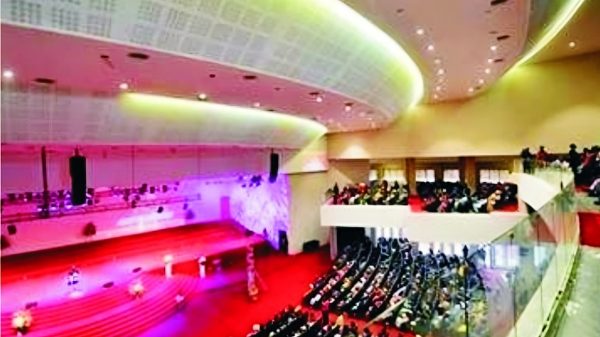By Remi Ola-Samuel
It is generally accepted that cities are the engines of economic growth, and nowhere are these engines firing harder, or populations growing faster, than in the developing world. Mass urbanization is proving to be “the single most important transformation” the world is seeing in the 21st century, according to Jamal Saghir, director of sustainable development at the World Bank, and it shows no signs of letting up. By 2050, the U.N. predicts 66% of us will call a city our home. Whilst other continents have gone far ahead of Africa in terms of infrastructure, there is hope however that in the coming years, the wisest destination for investment would be Africa. Taking into consideration variables such as housing, transport, water and power, healthcare, education, public safety as well as factoring economic indicators like GDP, inequality, middle-class growth, ease of doing business and FDI inflow, it is reputed that all investors would do well to focus their energy on capturing a large chunk of the virgin African landscape. Many may find this surprising due to the conventional view of Africa as a poor and corrupt continent plagued by political uncertainty. However, the best investment opportunities exist where perception does not match reality because the state of Africa is not as bad as has been portrayed. Over the course of the past 10 years, there are parts of Africa that have taken gradual steps towards greater democracy, security and prosperity.
Sub-Saharan African countries have experienced an average growth rate of 6% for the third straight year, which is growing toward 7% this year. At this rate, Africa’s poverty rate is expected to be reduced by 50% by 2015. That said, sub-Saharan Africa is growing faster than Asia, with the exception of India and China. The growth rates seen by African nations is due to various factors such as high oil and other commodity prices, practical government policies and an emphasis on tourism. Of interest, Kenya is one of Africa’s fastest growing economies, despite the fact that it does not have any commodities, because of the revenues it brings in from tourism. In addition, Zambia’s growth is due to copper and agricultural exports. This may come as a surprise to many but, Africa has developed an emerging middle class and Nigeria has a mobile-phone penetration of 8%, which is rising rapidly. Little wonder why the Chinese and Indians are taking the front row in FDI initiative to Africa. We take a look at the top 10 investment destinations in Africa and their unique offerings in no particular order.
South Africa
South Africa is still the No. 1 destination in Africa for foreign direct investment with no indication that will change. Investors have been attracted in recent years by government efforts to shore up infrastructure, with a handful of large-scale long-term capital investment programs including the 2012 National Infrastructure Plan. The government promised to spend $38 billion on new and upgraded infrastructure in transportation, energy, water, sanitation, health and education over 15-years. South Africa accounted for 24 percent of all foreign direct investment projects over the past seven years, receiving as much as the next three FDI leaders combined — Nigeria, Angola and Kenya. Investors are attracted by diverse economy, solid infrastructure, and ease of doing business, The top sectors and job creators through foreign direct investment include communication, metals, coal, oil and natural gas, food and tobacco and consumer products.
Nigeria
Nigeria is Africa’s largest economy with Lagos, PortHarcourt and Abuja as its major cities. As Africa’s sixth fastest growing economy (according to IMF projections 2015-2019), Nigeria is likely the most attractive market for retail property. By 2030, Lagos city in Nigeria is predicted to have a population of more than 25m and a per capita income of $2,810.
Ghana
Ghana, attracted $4 billion worth of capital investment in 2014 to put it at number eight of the top 10 FDI ranking. A major investment contributing to Ghana’s ranking is the Tema Port Expansion Project worth $1 billion. The port expansion involves the development of four deep-water berths and an access channel for larger vessels, increasing the port’s throughput capacity to 3.5 million twenty foot equivalent units
Morocco
FDI trends in Casablanca, Morocco are similar to those in Cairo with business services, ICT and media, retail and consumer products, and financial services being the sectors that attract the most investment. Casablanca is a top business destination in Africa for business investments and economic growths, its trade and investment programmes make Morocco a destination of business interests for any entrepreneur or business organization
Kenya
Nairobi, the capital city of East Africa’s largest economy is ranked as one of the most attractive destination for foreign direct investment (FDI) in Africa and a regional financial services hub. Kenya has had its economy being driven by agriculture in the past years but have opted for other means such as mining, tourism and trade and this has seen major discoveries of minerals including oil, rare minerals and gold in Kenya. The planned construction of the Konza technology city, a technology hub to be constructed as part of the nation’s Vision 2030, has also attracted the interest of key global tech giants including IBM (which set up the first African research lab in Nairobi last year), Google, Microsoft and Intel. Dubbed the African “Silicon Savannah,” the project is expected to be a key economic driver for the country in the coming years
Egypt
Egypt is Africa’s third largest economy with Cairo, Alexandria and Giza as its major cities. Al-Qahirah in Cairo, Egypt, is the second most popular destination for FDI projects, despite seeing a decline in activity in recent years. Cairo provides considerable opportunities for consumer-facing companies. The return to growth in 2015 begins with regaining lost production to match pre-Arab Spring numbers and then expanding at a rate that could surpass pre-Arab Spring projections.
Mozambique
Recent gas and coal discoveries in Mozambique have resulted in a number of multinational companies and foreign investors entering the country. Maputo, the capital city, has been experiencing a property and construction boom, and an influx of expatriates. It is projected as the 2ndfastest growing economy in Africa over the next five years, only trailing Ethiopia. The Mozambican government’s plans to invest heavily in the country’s industry and manufacturing market is pushing up industrial real estate as companies rush in. it is also a city that will rapidly see rising incomes post-gas production and export in the near term.
Tanzania
Tanzania’ s administrative and business hub, Dar es Salaam, is predicted to become Africa’s fifth most populous city by 2030. According to EY’s report, the country will see the greatest expansion of middle class households with incomes between $5,000 and $20,000 per year by 2030.
Ethiopia
Ethiopia is Africa’s second most populous country with a population of approximately 85 million habitats. Ethiopia is the third fastest growing country just behind China and India. Ethiopia is currently the fourth biggest economy in Africa. Ethiopia economy largely depends on agriculture accounting up to 46% of its economy.
Rwanda
Known as the “Land of a Thousand Hills,” and not minding its small size, Rwanda’s reform efforts have been so outstanding that it is reaping rapid rates of economic growth and associated improvements in the business environment. According to the World Bank’s Doing Business 2013 report, Rwanda ranks 52 out of 185 on “ease of doing business” and 8 on “ease in starting a business.” It is the second most improved nation globally and the top improved in sub-Saharan Africa since 2005. Through safety and security, zero-tolerance for corruption, and a stated goal to eliminate foreign aid (currently about 40 percent of its budget), Rwanda has put itself on a trajectory toward greater self-sufficiency; the evidence is in the numbers—projected 7.8% GDP growth in 2013, making it the ninth fastest growing economy in the world.
The good news is that perceptions about the continent seem to be shifting. For the first time, Africa is seen as the second most attractive investment destination in the world. It has strong fundamentals to encourage investment including steady democracy and macroeconomic growth; an improving business environment; rising consumer class; abundant natural resources and infrastructure development.” “Africa’s stronger investment attractiveness is best explained by its own sustained growth rates in the context of slower global growth. Africa’s growth prospects are likely to remain solid, as an urbanizing and rising middle class drives demand for consumer products and improved services.” The bottom line? According to Makhtar Diop,World Bank Vice President for the Africa Region, it will take partnerships between governments and the private sector, between African countries and their neighbors, between Africa and non-neighbor countries, and between Africa and its development partners for the realization of africa’s huge potential and a better life for the citizens. These countries may not necessarily be the biggest economies in Africa, though some are, but countries with the biggest potential in investment opportunities.














